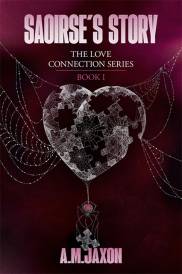Lauren Ambrose, Where the Wild Things Are Interview
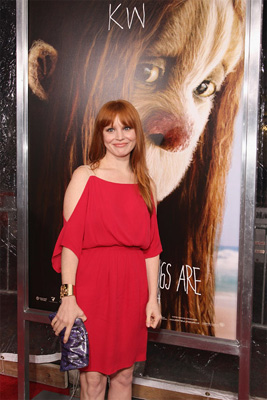
LAUREN AMBROSE, WILD THING.
EXCLUSIVE Lauren Ambrose, Where the Wild Things Are Interview by Paul FischerLauren Ambrose may be best known as Claire in the critically acclaimed Six Feet Under, but is further establishing herself as a star of Independent film. Connecticut native Lauren Ambrose got her start with stage and TV work in nearby NYC before film and television roles brought her to Los Angeles. She made her Off-Broadway debut at age fourteen with a role in "Soulful Scream of a Chosen Son", a drama produced by the Vineyard Theatre Company. Ambrose also worked with the Ensemble Studio Theater and Naked Angels troupes, and took some memorable roles on the Manhattan-filmed drama series "Law & Order". In 1992 and 1993 she had supporting guest roles on the popular NBC fixture, playing characters related to the respective victims and in 1998, she returned to the series with a featured guest role, impressing as a mentally-challenged young woman raped by a group of popular high school students.
In 1997, Ambrose made her feature debut in the Frank Oz comedy "In and Out" playing Vickie Rayburn, a gifted student of Kevin Kline's sexually ambiguous English teacher. More screen time came with her turn in the following year's "Can't Hardly Wait". Already a familiar face to the series' core audience, Ambrose took on a well-received 1999 recurring role on Fox's "Party of Five". Ambrose took starring turns in the independent films "Swimming" (1999) and "Psycho Beach Party" (2000). She returned to television in the HBO black comedy "Six Feet Under" (2001-2005 starring as the family's young daughter Claire, a tart-tongued, anti-authoritarian aspiring artist who frequently questions societal conventions. In 2002, Amborse was nominated for an Emmy award for her authentic, uncompromising portrayal.
Audiences will here Lauren Ambrose in the strange family fantasy Where the Wild Things Are, from innovative director Spike Jonze as KW in the long awaited film version of the classic children's story. Lauren Ambrose talked to Paul Fischer in this exclusive interview.
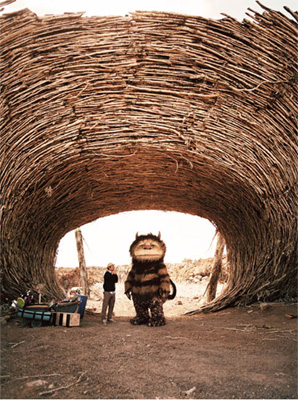 QUESTION: Now, I presume that the audition process for this would have been very much - because from what I can gather, Michelle Williams was originally cast, and then she didn't get it because of something to do with her voice. So, when you went for this, what do you think they were looking for, and what were you able to bring them when you auditioned to play this character?
QUESTION: Now, I presume that the audition process for this would have been very much - because from what I can gather, Michelle Williams was originally cast, and then she didn't get it because of something to do with her voice. So, when you went for this, what do you think they were looking for, and what were you able to bring them when you auditioned to play this character?LAUREN AMBROSE: Let's see. I guess - yeah. I mean, there were a lot of people in this movie, that - I think this movie evolved quite a bit over the long process, and long period of time that they were making it. So, people kind of filtered in and out, and I ended up staying, which was nice. I - let's see. I mean, the audition process was like, I went in a studio booth and worked with Spike on the phone for hours. Literally. Like, I think he was in LA, and I was in New York. And we did it was as though we recorded the whole thing, and I would have been like, "Okay, you've got all the work you need, so you don't even have to hire me now." So, we did that for ages. And then I guess I was doing it, like, it was never really a time where - I don't know. [LAUGHTER] I mean, it was just kind of nebulous. Then I ended up recording more and then I was like, "Oh, I guess I'm in this."
QUESTION: How were you able to come up with the vocal rhythm for this character? I mean, did you study the character in the original book?
LAUREN AMBROSE: Yeah. The book is such a great resource, because there's so much about the character. No. That's a joke. There are ten lines to the book.
QUESTION: So, how do you create a vocal rhythm for the character?
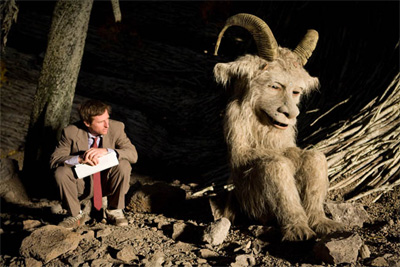 LAUREN AMBROSE: Oh, that's why it's such a hard one, because it was really just Spike. I put it all in the hands of Spike Jonze. I mean, we literally - I said these lines so many different times, and so many different ways, and so many different places and feelings. And we sort of - I guess we were just trying to whittle it down to the essence, every time, you know? So that it was all coming from a very vulnerable, open place. I mean, that - that's kind of my memory of working on it. That there's no linear arc to the character, or any - I mean, it was really unlike anything I've ever worked on, in that sense, because there is no real sense to be made of it. But - yeah. It wasn't like a linear process. It was just sort of wild. I mean, Spike would be, like, throwing his body on me, and punching me in the stomach and the back, and pummeling me and throwing me on the floor and rolling me around. And James Gandolfini was, like, threatening to step on my head. And we're having screaming matches, and saying inappropriate things that wouldn't be in the film, and then saying the lines. And it was sort of a mish mosh of emotion. And I guess his goal was really to try to get people, like, worn down, 'til they were sort of very free in their vocal quality.
LAUREN AMBROSE: Oh, that's why it's such a hard one, because it was really just Spike. I put it all in the hands of Spike Jonze. I mean, we literally - I said these lines so many different times, and so many different ways, and so many different places and feelings. And we sort of - I guess we were just trying to whittle it down to the essence, every time, you know? So that it was all coming from a very vulnerable, open place. I mean, that - that's kind of my memory of working on it. That there's no linear arc to the character, or any - I mean, it was really unlike anything I've ever worked on, in that sense, because there is no real sense to be made of it. But - yeah. It wasn't like a linear process. It was just sort of wild. I mean, Spike would be, like, throwing his body on me, and punching me in the stomach and the back, and pummeling me and throwing me on the floor and rolling me around. And James Gandolfini was, like, threatening to step on my head. And we're having screaming matches, and saying inappropriate things that wouldn't be in the film, and then saying the lines. And it was sort of a mish mosh of emotion. And I guess his goal was really to try to get people, like, worn down, 'til they were sort of very free in their vocal quality.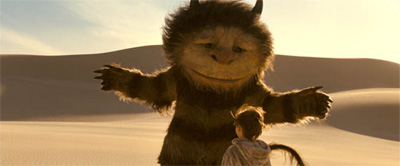 QUESTION: Is it hard to play a character that doesn't have a conventional linear progression?
QUESTION: Is it hard to play a character that doesn't have a conventional linear progression?LAUREN AMBROSE: You know,it's funny. I mean, even talking about it that way. It was tiring, because it was like, I don't know what we're doing. I don't know what end is up. And we'd sort of just make stuff up and do it, and do something else, and do it a different way, and do it like this, and do it like that. And - it was just sort of a wild experience, really. It was just sort of a - I mean, I think, ultimately, he's gotten very emotional, beautiful vocal performances out of his actors. And actually, before I came onto this, the other actors had this - which I'm sad to say I missed - they had this sort of long period of working all together in a group for many weeks.
QUESTION: They did, like, a workshop out in the wild, didn't they?
LAUREN AMBROSE: Yeah. They ran in the wild. They played games. They were in a studio with foam set pieces. Which - and I had some of that, and I had some of the other actors. And mostly, Spike playing Max for me, because most of my stuff is with Max. And - yeah. So, it was a very organic way of doing - especially a voice recording. Because voice work is - I mean, my limited experience with that kind of thing is that it's like - you know, you're sort of alone in a booth, and it's quite sterile. But this was quite messy. And free, and sort of organic. And I think that that's reflected in the piece, you know?
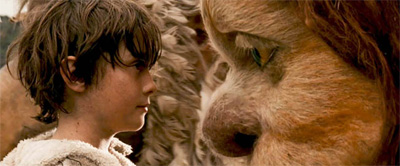 QUESTION: And you never worked with the actor who plays Max, yes??
QUESTION: And you never worked with the actor who plays Max, yes??LAUREN AMBROSE: I met the actor who plays Max today. Spike was my Max. And I was able to see some of what they shot in Australia. You know, they went to Australia with the beautiful guys in suits. The puppets, and the stunt people, and everything, and the wild sets, were all in Australia. And so, yeah. This is just - you know, my role was merely a small cog, in a big thing.
QUESTION: Have you seen the movie yet?
LAUREN AMBROSE: I have not seen the most recent incarnation, where all of the faces are done. I saw a rougher draft of it, a little while back.
QUESTION: How surprised are you by the visual representation of your character, and the matching of your voice with the character? And your performance? How surprised are you by the way the film looked, with what you've seen?
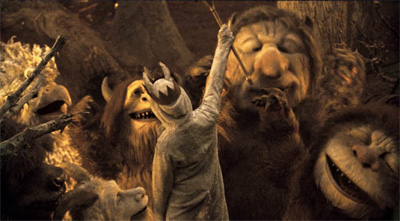 LAUREN AMBROSE: It's so beautiful. You know? It's so elegant and simple, and - simply done. I don't know, I'm so impressed. Like, for example, with a little bit of the CGI stuff that I have seen, of animating the faces. It's like, "Oh, boy. What's that gonna be?" But then it's all done so subtlely. The palette, the colors. Even the sets, and then the use of the technology that's available to Spike. And I'm sure it was probably tempting to really - it probably is tempting, if you have that all at your fingertips, to like, really use it. And be heavy handed with it. But they were so restrained, and made such a - really just used it as a subtle shading device. You know? To sort of subtle-ly bring it more to life. And I think - I don't know. It's just - it's, to me, so creative. I think the book is about creativity. About imagination. And it's like a poem. And it's also such a precious children's book, to so many people. To generations of people. Since 1963, when it was published, people have read this book, and really identified very deeply with some part of it. Yeah. And then I just think it's a perfect fit, to have Spike, who isn't going to make a classic adaptation of anything, as witnessed by his other films - to have him make this movie, where it's - I think it's in line with really great adaptations. Great adaptations. Which doesn't take anything away from the original piece of art, and really builds on it to make something new and different, and just as perfect, you know? Or, just as special. And I think it gives kids quite a bit of credit, too. I mean, it's not an easy thing. I mean, it's like, people with problems and sort of dark sides of our humanity, and what it is to be alone. What it is to be human and wild, and have to fit in, and have family and have community, and all of those things. And so I think it's just operating on kind of intense levels. So, I don't know. I think it's great.
LAUREN AMBROSE: It's so beautiful. You know? It's so elegant and simple, and - simply done. I don't know, I'm so impressed. Like, for example, with a little bit of the CGI stuff that I have seen, of animating the faces. It's like, "Oh, boy. What's that gonna be?" But then it's all done so subtlely. The palette, the colors. Even the sets, and then the use of the technology that's available to Spike. And I'm sure it was probably tempting to really - it probably is tempting, if you have that all at your fingertips, to like, really use it. And be heavy handed with it. But they were so restrained, and made such a - really just used it as a subtle shading device. You know? To sort of subtle-ly bring it more to life. And I think - I don't know. It's just - it's, to me, so creative. I think the book is about creativity. About imagination. And it's like a poem. And it's also such a precious children's book, to so many people. To generations of people. Since 1963, when it was published, people have read this book, and really identified very deeply with some part of it. Yeah. And then I just think it's a perfect fit, to have Spike, who isn't going to make a classic adaptation of anything, as witnessed by his other films - to have him make this movie, where it's - I think it's in line with really great adaptations. Great adaptations. Which doesn't take anything away from the original piece of art, and really builds on it to make something new and different, and just as perfect, you know? Or, just as special. And I think it gives kids quite a bit of credit, too. I mean, it's not an easy thing. I mean, it's like, people with problems and sort of dark sides of our humanity, and what it is to be alone. What it is to be human and wild, and have to fit in, and have family and have community, and all of those things. And so I think it's just operating on kind of intense levels. So, I don't know. I think it's great.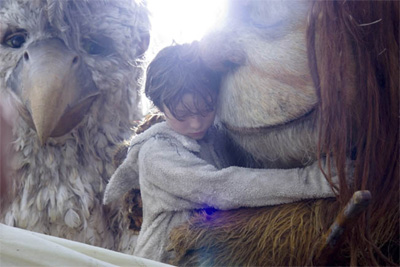 I'm just sort of in awe of Spike Jonze and his work. I mean, when I think about all of the hours of footage. I mean, I know how much we worked together, so, I can only imagine - you know, multiplied by however many other people that are in it, and all of the other parts of it, how many hours have gone into it. And then him - you know, he had to then pair it all down, and make a narrative story about it. And then I know that he fought to make the movie that, really, he wanted to make. And really, would do justice to the Maurice Sendak book.
I'm just sort of in awe of Spike Jonze and his work. I mean, when I think about all of the hours of footage. I mean, I know how much we worked together, so, I can only imagine - you know, multiplied by however many other people that are in it, and all of the other parts of it, how many hours have gone into it. And then him - you know, he had to then pair it all down, and make a narrative story about it. And then I know that he fought to make the movie that, really, he wanted to make. And really, would do justice to the Maurice Sendak book. QUESTION: Now, you know, you've had a really remarkable career. And I guess Six Feet Under's Claire really cemented your career. How surprised are you by the state of your career, and how challenging has it been for you to find a character as rich as Claire was to you? I mean, how challenging was it for you to find the kind of role that defined you when you worked on Six Feet Under?
LAUREN AMBROSE: I mean, obviously that was a really special show, and I was very spoiled to go to work on that show every day. And certainly, I guess, it was a very idealistic version of working in television. That's what I've been told, and what I experienced, as well. So - yeah. I mean, but - you know, since then, I've gotten to play Juliet, and Ophelia, and - you know some other good ones.
QUESTION: What's next for you?
LAUREN AMBROSE: Let's see. I made a movie with Don Roos that Natalie Portman was in. I just finished another play recently. So, I don't know exactly what I'll go onto next, hence the gypsy life.
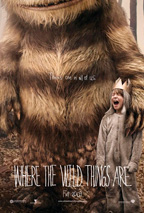
Where the Wild Things Are
Starring: Paul Dano, Forest Whitaker, Mark Ruffalo, Catherine Keener, Catherine O'Hara, Max Records, Lauren Ambrose, James Gandolfini, Chris CooperDirector: Spike Jonze
Genre: Childrens
Innovative director Spike Jonze collaborates with celebrated author Maurice Sendak to bring one of the most beloved books of all time to the big screen in "Where the Wild Things Are," a classic story about childhood and the places we go to figure out the world we live in. The film tells the story of Max, a rambunctious and sensitive boy who feels misunderstood at home and escapes to where the Wild Things are. Max lands on an island where he meets mysterious and strange creatures whose emotions are as wild and unpredictable as their actions. The Wild Things desperately long for a leader to guide them, just as Max longs for a kingdom to rule. When Max is crowned king, he promises to create a place where everyone will be happy. Max soon finds, though, that ruling his kingdom is not so easy and his relationships there prove to be more complicated than he originally thought.
MORE




